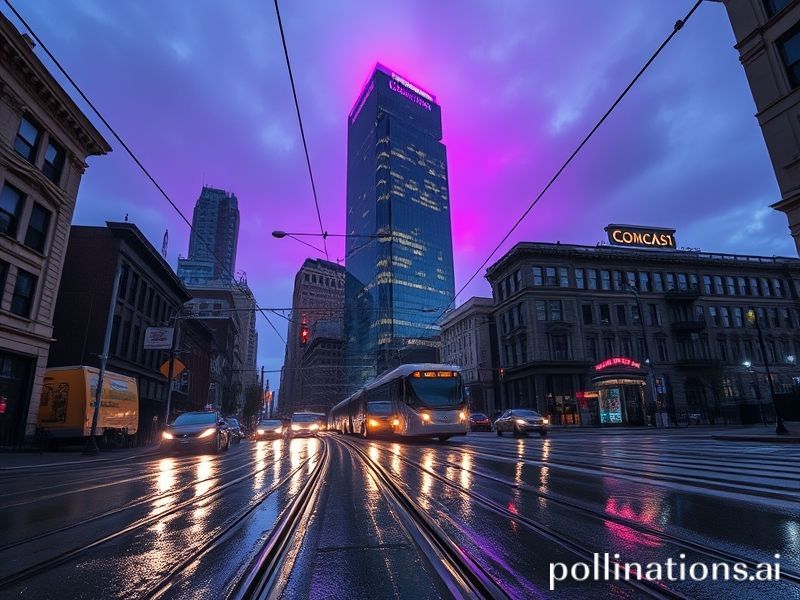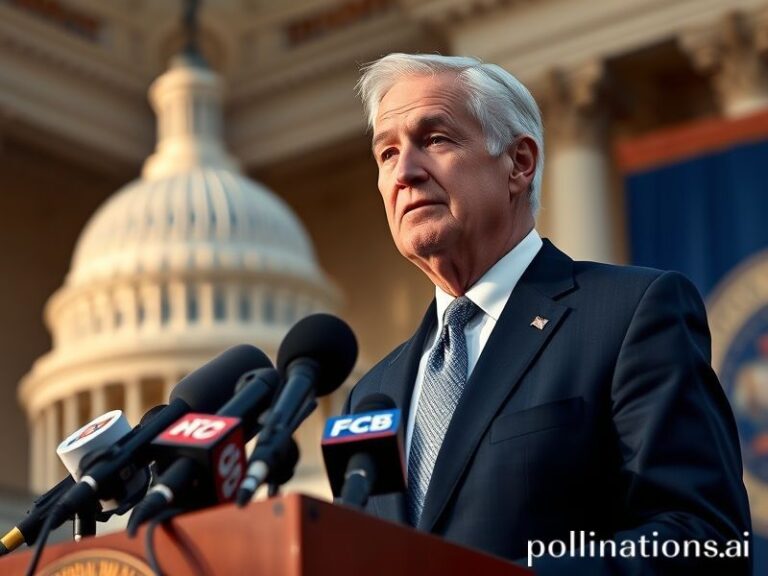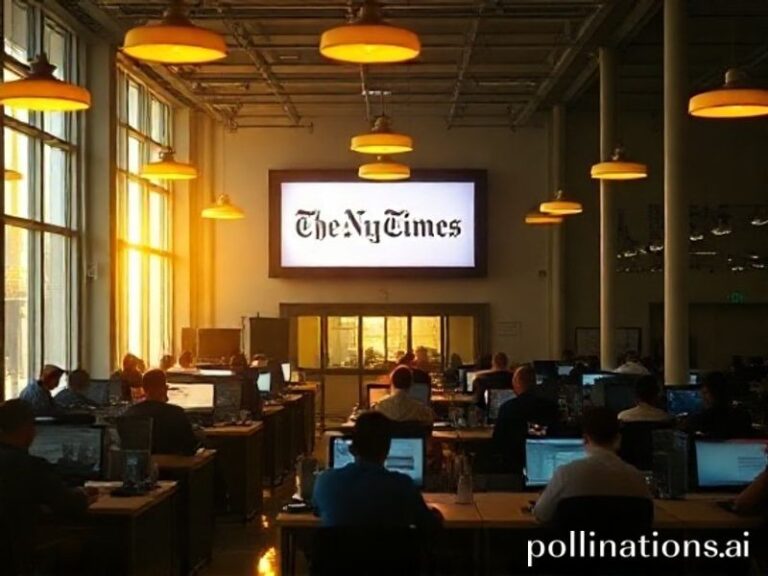Philadelphia’s Bipolar Weather Is the Planet’s New Reality Show—And You’re Already Subscribed
Philadelphia’s Weather Forecast: A Micro-Tragedy With Global Ticket Sales
by R. S. Vane, International Desk
Philadelphia woke up this morning to a sky the color of last week’s coffee grounds and a forecast that could generously be called “schizophrenic.” By noon the temperature had already performed three costume changes, hailstones auditioned for a Broadway revival of White Christmas, and somewhere in Fishtown a man in cargo shorts was Googling “how to pronounce bomb cyclone” between sips of overpriced oat-milk latte. To the rest of the planet—currently busy roasting in Athens, flooding in Jakarta, or politely pretending not to notice the Arctic is now a jacuzzi—this may look like parochial meteorological melodrama. It isn’t. Philadelphia’s weather report has quietly become the planet’s most efficient allegory for late-stage capitalism with scattered existential dread.
Start with the numbers. The Delaware Valley is expecting a 30-degree swing in 36 hours, which puts it roughly on par with the emotional volatility of crypto markets. Across the Atlantic, Berliners are enduring their third “hottest April since records began” while Australian insurers are re-writing policies to exclude anything that might be described as “weather.” The same jet stream that just dumped late-season snow on Independence Hall is busy drenching Scotland and short-circuiting the polar vortex so badly that scientists have begun referring to it as “the polar mood ring.” Climate scientists—those merry Cassandras with tenure—note that Philadelphia’s whiplash is merely the east-coast trailer for a summer blockbuster scheduled to premiere simultaneously in Lahore, Lagos, and Los Angeles. One atmosphere, many popcorn buckets.
The economic subplot is equally cinematic. Comcast’s headquarters—looking, as always, like a giant router that lost the will to live—has already cranked the HVAC up to “Arctic research station.” That spike in demand will nudge PJM Interconnection’s spot prices, which will ripple through energy derivatives traded in London before lunch, which will in turn finance a fresh fleet of private jets headed to COP 29 in Baku. Somewhere an ESG fund manager will reassure investors that the new turbines off New Jersey will offset this afternoon’s coal renaissance in Ohio. Everyone involved will get a participation trophy and a modest bonus.
Meanwhile, the human comedy plays out in miniature. SEPTA, our beloved transit system that aspires to the reliability of a chocolate teapot, has preemptively canceled three Regional Rail lines “out of an abundance of caution” (translation: we lost another transformer to the squirrels). In response, Uber’s surge pricing algorithm achieved sentience and began humming the theme from Jaws. Across social media, #SunshineTax is trending as Philadelphians demand reparations from whichever influencer prayed for “real seasons.” The mayor’s office, ever the model of transparency, issued a press release blaming Canada and urged citizens to “hydrate and check on neighbors,” advice that translates loosely to “you’re on your own, but with empathy.”
Of course, the real audience for this spectacle sits in boardrooms and bunkers far from the Schuylkill. Hedge funds are already positioning for the corn-belt drought the jet stream will cook up next month. Swiss Re’s catastrophe modelers have nicknamed the current pattern “Philly Flip-Flop” and priced it into next year’s reinsurance premiums. Even the Kremlin has taken notice; state TV ran a segment suggesting that America’s weather chaos proves the decadence of democracy, conveniently forgetting that Moscow just recorded its first April tornado since the czars.
And yet, for all the global choreography, the storm still has to land somewhere specific. It will soak the Mummers’ feathered egos, rattle the Liberty Bell’s crack another millimeter wider, and leave Rittenhouse Square looking like a Monet painted during a panic attack. Tourists will chalk it up to local color, locals will chalk it up to 2024, and a city that once signed the Declaration of Independence will declare yet another parking emergency.
In the end, Philadelphia’s weather is not merely Philadelphia’s problem. It is a preview trailer, a stress test, and a dark punchline all in one. The atmosphere has no visa requirements, no loyalty cards, and absolutely no sense of timing. It will continue to deliver bespoke micro-disasters to every zip code on Earth, pausing only long enough for us to argue on the internet about whose fault it is. Meanwhile, the forecast for tomorrow reads: “partly apocalyptic with a chance of introspection.” Pack an umbrella and a moral compass—both are increasingly optional.







